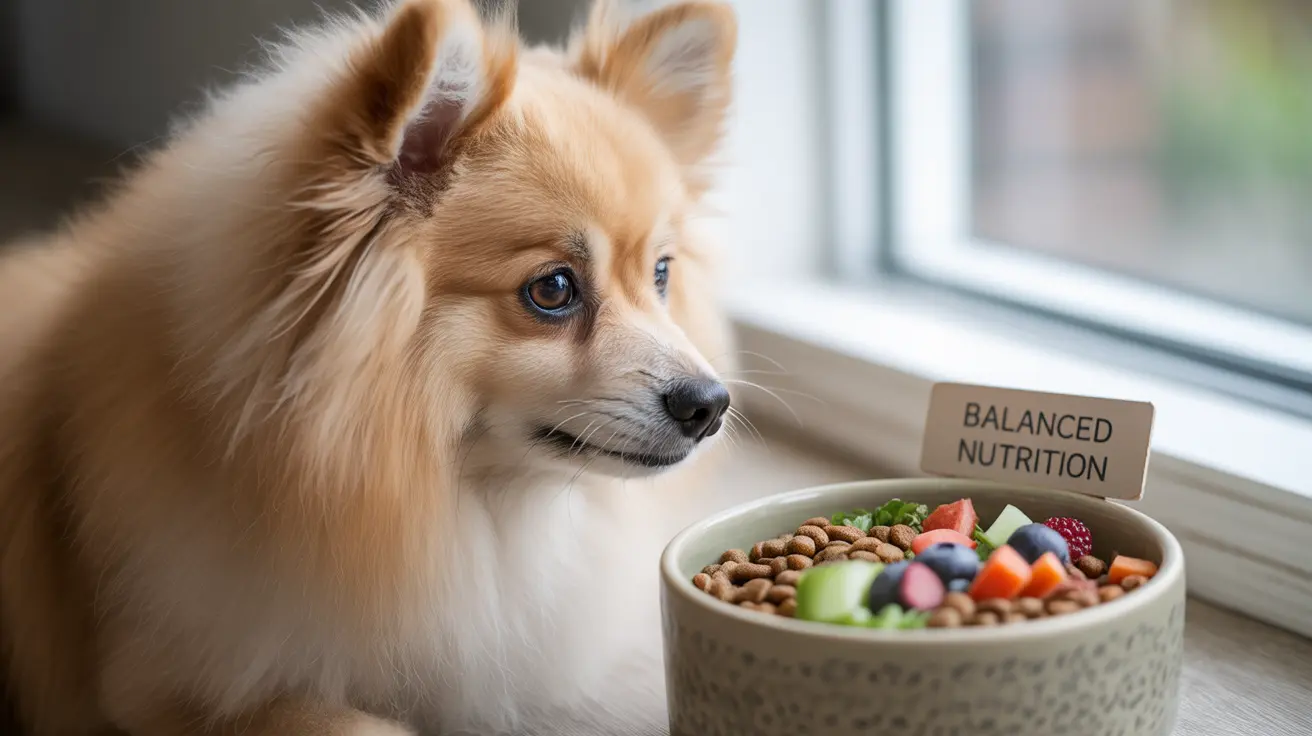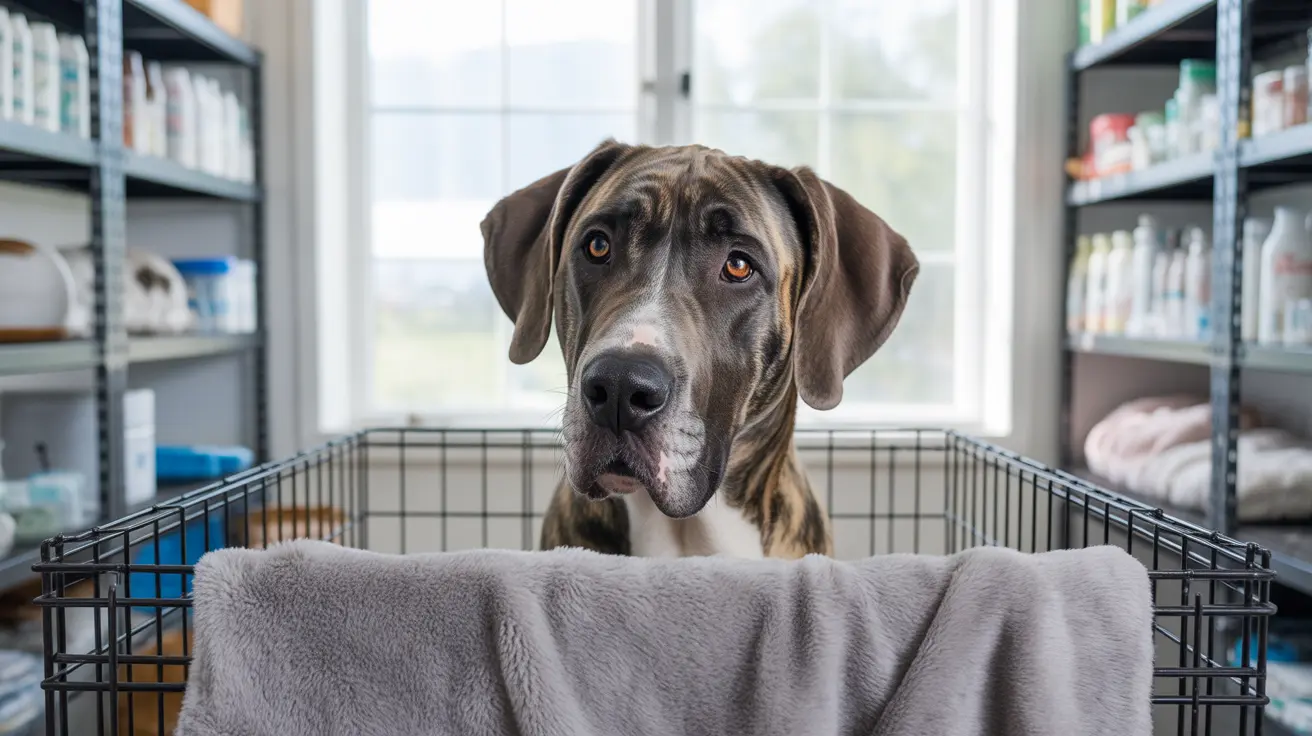Understanding and providing a balanced diet for pets is crucial for their overall health, longevity, and happiness. As pet owners, we have a responsibility to ensure our beloved companions receive optimal nutrition that supports their well-being throughout all life stages. This comprehensive guide will explore the fundamentals of pet nutrition and help you make informed decisions about your pet's dietary needs.
Whether you have a playful puppy, an adult cat, or a senior pet, the right combination of nutrients can make a significant difference in their quality of life. From essential proteins to vital minerals, every component plays a specific role in maintaining your pet's health and vitality. Let's dive into what makes a truly balanced diet for our four-legged friends.
Essential Components of Pet Nutrition
Proteins: The Building Blocks
Proteins for pets are fundamental to their health, serving as the primary building blocks for muscles, tissues, and organs. High-quality protein sources such as lean meats, fish, and eggs provide the amino acids necessary for proper pet growth support and maintenance of body functions. For active pets or those recovering from illness or injury, adequate protein intake is particularly critical in aiding recovery and maintaining overall energy levels.
Healthy Fats and Oils
Fats in the pet diet play a crucial role in energy provision and nutrient absorption. These components support a range of vital functions in your pet's body:
- Healthy skin and coat maintenance: Omega-3 and omega-6 fatty acids support a glossy, soft coat and prevent dry, flaky skin.
- Brain development: Especially important for young animals, healthy fats contribute to cognitive growth and neural health.
- Cell membrane integrity: Fats help maintain the structure and function of every cell in your pet's body.
- Vitamin absorption: Certain vitamins (A, D, E, and K) are fat-soluble and require dietary fat for proper absorption.
Sources of healthy fats include fish oil, flaxseed, chicken fat, and other animal or plant-based oils carefully selected for nutritional value.
Vital Vitamins and Minerals
Pet vitamins and minerals are essential micronutrients that support countless bodily functions, from metabolic processes to the strength of bones and teeth. A well-balanced diet should include appropriate amounts of crucial nutrients:
- Calcium: Vital for bone health and muscle function.
- Iron: Supports the formation of healthy red blood cells and oxygen transport.
- Zinc: Plays a role in skin health and immune system efficiency.
- Vitamin D: Assists in the absorption of calcium, supporting skeletal development.
Deficiencies or imbalances in these nutrients can lead to developmental, metabolic, or immune system problems, so it is important to provide the right quantities as recommended for your specific pet.
Choosing the Best Pet Nutrition
Understanding Pet Dietary Requirements
The key to providing nutritious pet meals lies in understanding your pet's unique needs. Different factors can influence dietary requirements:
- Age and life stage: Puppies, kittens, adults, and senior pets all have varying nutritional needs as their bodies shift through life stages.
- Size and breed: Larger breeds may require diets formulated for joint health, while small breeds often benefit from calorie-dense kibbles.
- Activity level: Highly active pets need more calories and protein compared to sedentary ones.
- Health conditions: Pets with allergies, diabetes, or kidney problems may need special diets tailored to their needs.
- Metabolic rate: Some animals naturally burn energy faster and thus benefit from more energy-dense foods.
Selecting Healthy Pet Food
With many pet food options available, it’s vital to scrutinize ingredient labels and choose food that best matches your pet’s health requirements. When choosing pet food ingredients, focus on the following:
- Whole, natural ingredients: Seek products with identifiable meats, vegetables, and grains.
- Named protein sources: Ingredients should specify the type of meat or fish, rather than vague terms like “meat by-products.”
- Appropriate fat content: The diet should include healthy sources of fat suited to your pet’s life stage and activity level.
- Essential vitamins and minerals: Look for pet food formulas that ensure balanced levels of all necessary micronutrients.
- Limited artificial additives: Avoid excess preservatives, artificial colors, or flavors that may contribute to allergies or sensitivities.
Consult your veterinarian for personalized recommendations, especially when transitioning to a new diet or considering homemade pet food.
Pet Health Tips for Optimal Nutrition
Feeding Guidelines
Proper feeding routines are critical for sustaining your pet’s wellness. Following essential guidelines includes:
- Maintaining consistent feeding schedules: Regular meal times support digestion and behavioral stability.
- Measuring portions accurately: Prevents overfeeding and obesity by controlling calorie intake.
- Monitoring water intake: Fresh, clean water should always be available, as hydration is vital for all bodily functions.
- Avoiding table scraps: Many human foods are harmful to pets and can lead to nutritional imbalances.
- Regular weight checks: Monitoring your pet’s weight helps identify early signs of over- or under-nutrition.
Special Considerations
Dietary needs can vary greatly between pets. For optimal pet well-being, consider these key points:
- Age-specific nutritional needs: Ensure food matches your pet’s developmental stage.
- Breed-specific requirements: Some breeds require tailored diets, such as large-breed dog formulas to support joint health.
- Activity level adjustments: Highly active pets often need increased calories and protein for energy and recovery.
- Health condition modifications: Pets with specific medical conditions may need diets adjusted with the help of your vet.
- Seasonal dietary changes: Pets may burn more calories in extreme weather and adjusting portions seasonally can help maintain a healthy weight.
Importance of Pet Diet in Different Life Stages
Puppy and Kitten Nutrition
Puppies and kittens have higher nutritional demands than adults due to rapid growth and development. A balanced diet for young animals promotes:
- Rapid growth and development: Adequate calories and proteins are necessary for healthy, uniform growth rates.
- Brain development: DHA and other essential fatty acids support cognitive function and learning ability.
- Immune system strengthening: Proper nutrients help build strong defenses against illnesses during early life.
- Bone and joint formation: Sufficient calcium, phosphorus, and vitamin D prevent musculoskeletal problems later in life.
Adult Pet Nutrition
Adult pets require a maintenance diet to keep them fit and healthy throughout their lives. Their nutrition should focus on:
- Weight maintenance: Balancing calorie intake prevents obesity and supports overall health.
- Energy requirements: Regular activity levels require diets that maintain high energy without excess weight gain.
- Muscle preservation: Continued protein intake supports strong, lean muscle mass.
- Organ health: Quality ingredients and balanced nutrients contribute to the long-term wellness of vital organs.
Pet Wellness Through Proper Nutrition
Maintaining pet wellness through diet involves more than just selecting the right food. Best practices include scheduling regular veterinary check-ups to monitor your pet’s health and make dietary adjustments as needed. Choosing quality ingredients, establishing appropriate portion sizes, and staying informed about your pet’s specific dietary needs all contribute to a happier, healthier life for your companion. By integrating these strategies, you play a proactive role in your pet’s longevity and overall quality of life.
Frequently Asked Questions
- Why is a balanced diet important for pets?
- A balanced diet ensures pets receive all essential nutrients necessary for optimal health, supporting growth, immunity, energy, and disease prevention throughout their lives.
- What nutrients do pets need for a balanced diet?
- Pets require proteins, fats, vitamins, and minerals to maintain healthy bodily functions and support physical activity and growth.
- How can I choose the right food for my pet?
- Select food that is complete, age-appropriate, and formulated for your pet's species, and consult your veterinarian if unsure.
- What happens if my pet's diet is unbalanced?
- An unbalanced diet can cause health issues including nutritional deficiencies, poor growth, weakened immunity, and reduced vitality.
- Are homemade diets safe for pets?
- Homemade diets can be healthy only if properly formulated with veterinary input to ensure all nutritional needs are met.
- Can human food be given to pets?
- Generally, it is best to avoid feeding pets human food, as many foods can be dangerous or nutritionally inadequate for them.
- How often should I change my pet's food?
- Only change your pet’s food with veterinary advice or when health needs dictate to avoid digestive upsets and nutritional imbalances.
- Is raw food diet safe for all pets?
- Not all pets can tolerate raw diets; consult your vet before making such dietary changes, as improper raw feeding can pose health risks.
- How do age and breed affect a pet's dietary needs?
- Nutritional needs vary by age, breed, activity level, and health status, so individualized diets are essential.
- Can supplements replace a balanced diet?
- Supplements should not replace a balanced diet but may be useful when recommended by a vet to address specific deficiencies.
Providing the best pet nutrition is one of the most important responsibilities of pet ownership. By understanding and implementing proper dietary guidelines, you can help ensure your pet maintains optimal health throughout their life. Remember that every pet is unique, and consulting with your veterinarian about specific dietary needs is always recommended for achieving the best results in your pet's nutrition journey.






